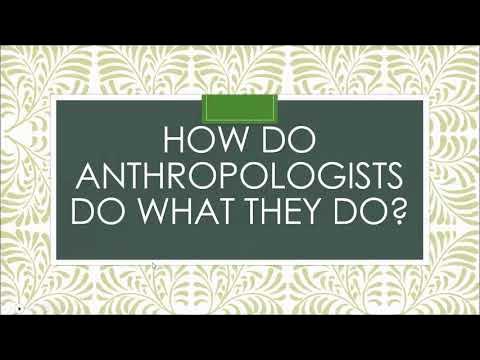UCSP #1 Anthropology | Understanding Culture, Society, and Politics Module 1
Summary
TLDRThis introductory video lesson on 'Understanding Culture, Society, and Politics' delves into the basics of anthropology, the holistic study of human beings and their ancestors. It outlines the learning objectives, emphasizing the importance of understanding cultural variations, social differences, and political identities. The video introduces key anthropological methods like participant observation and ethnography, and touches on the sub-disciplines within anthropology, including physical, linguistic, cultural, applied, and archaeology. It highlights the study's interdisciplinary nature, straddling both science and humanities, and underscores the significance of biological and cultural evolution in shaping human societies.
Takeaways
- 📚 Anthropology is the study of human beings and their ancestors in terms of physical characteristics, environmental, and social relations.
- 🔍 The primary learning competency is to articulate observations on human cultural variation, social differences, social change, and political identities.
- 🎯 The goal of the module is to identify subjects of inquiry and goals of anthropology and to explain the anthropological perspective on culture.
- 🌍 Anthropology can be described as a science that uncovers principles of behavior applicable to all human communities.
- 👥 Participant observation is a key data gathering method in anthropology, where researchers immerse themselves in a community to observe and live as the community members do.
- 📈 The discipline of anthropology compares aspects of different societies and searches for interesting dimensions for comparison.
- 📚 Ethnography is the in-depth study of a particular group of people, focusing on their social and cultural environment.
- 🧬 Physical anthropology focuses on the biological development of humans and their contemporary variation.
- 🗣 Linguistic anthropology examines the language of a group of people and its relation to their culture.
- 🌐 Cultural anthropology explores the practices, beliefs, and social institutions of different societies.
- 🛠 Applied anthropology uses theories and approaches to solve contemporary problems and is a practical application of anthropological knowledge.
Q & A
What is the main focus of the first module in the subject 'Understanding Culture, Society, and Politics'?
-The main focus of the first module is anthropology, which is the study of human beings and their ancestors in terms of physical characteristics, environmental, and social relations.
What are the essential learning competencies expected at the end of Module One A?
-The essential learning competencies include the ability to articulate observations on human cultural variation, social differences, social change, and political identities.
What is anthropology defined as in the context of this video script?
-In this script, anthropology is defined as a science that uncovers the principles of behavior that apply to all human communities and involves the comparative study of culture and social life.
What is participant observation and why is it significant in anthropology?
-Participant observation is a data gathering method where the researcher observes and lives with the people in a natural or social setting for an extended period. It is significant because it allows the researcher to immerse themselves in the community and gain a deep understanding of the culture and social dynamics.
What is the role of ethnography in anthropological studies?
-Ethnography is the study of a particular group of people, providing a thorough, close-up examination of a specific social and cultural environment. It helps in understanding the nuances of a particular society.
How does anthropology relate to other social sciences and humanities?
-Anthropology shares many features with other social sciences and humanities, and it can be considered both a science and a part of the humanities, depending on the perspective and the focus of the study.
What are the four main branches of anthropology mentioned in the script?
-The four main branches of anthropology mentioned are physical (biological), linguistic, cultural, and archaeology.
What does physical anthropology focus on?
-Physical anthropology focuses on the biological development of humans and their contemporary variation, including the study of genetics and inherited traits.
How does linguistic anthropology relate to culture?
-Linguistic anthropology examines the language of a group of people and its relation to their culture, exploring how language reflects and influences cultural practices and beliefs.
What is the purpose of applied anthropology?
-Applied anthropology aims to solve contemporary problems by applying anthropological theories and approaches, often working directly with communities to address social issues.
What does archaeology contribute to the study of anthropology?
-Archaeology contributes to anthropology by examining the remains of ancient human populations, providing insights into past environments, societies, and cultures.
Outlines

This section is available to paid users only. Please upgrade to access this part.
Upgrade NowMindmap

This section is available to paid users only. Please upgrade to access this part.
Upgrade NowKeywords

This section is available to paid users only. Please upgrade to access this part.
Upgrade NowHighlights

This section is available to paid users only. Please upgrade to access this part.
Upgrade NowTranscripts

This section is available to paid users only. Please upgrade to access this part.
Upgrade NowBrowse More Related Video
5.0 / 5 (0 votes)





